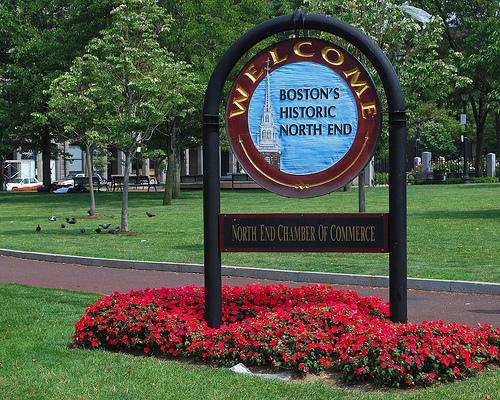Jason Kenosky
Journal Staff
As a Suffolk student currently residing in Allston-Brighton, I have first hand experience as to how college students and permanent residents interact with one another. Surprisingly, that interaction comes more in the form of turning a blind eye than anything. The stereotypical image of the loud, drunken, college student who is aloof towards their general surroundings is alive and well in Boston’s most prominent student ghetto. The neighbors, for the most part, don’t seem to mind.
Before I became a resident, I had little idea what was in store. My particular street has a quaint, quiet, respectable quality to it — until it meets Commonwealth Avenue and the vibe takes on a more unattended feel. Garbage and lawn chairs strewn about small grassy yards that could have used a good mowing four months ago round out the picture. Add some empty beer cans and random garbage for prosperity.
Most of the student residents, as far as I can tell, don’t mind living in this particular part of town. I would hazard to guess the reason being that they can get away with seemingly anything. It is some kind of induction rite into life as a college student in Boston. Anything goes and nobody cares.
The activities that go down in Allston-Brighton are what you might expect: numerous parties extending over the hump of midnight, competing stereos, and a bizarre competition involving who can woo-hoo the loudest. Then you have public urination, puddles of vomit, broken bottles, fights, and general unruly behavior as well.
The majority of apartments in this area are on the smaller side, which often causes parties to spill out into the streets. The supporting cast of characters are not exactly the problem per se, but the effects that are caused by an over-consumption of alcohol on a rather inexperienced crowd is.
At its root, the annoyance comes in three forms: noise, garbage, and alcohol-induced psychosis. The noise is not just contained to gatherings inside individual apartments; it rides shotgun with those who take their partying outside. Residential streets that would otherwise be quiet are filled with the voices of young adults speaking in very loud tones — if not outright yelling — like a bunch of banshees screeching about absolutely nothing.
I know the effects of alcohol on cognition, but why the young feel the need to hoot and holler and recant some-kind-of frat-boy-like cadence about who’s screwing who at the top of their lungs at 3 a.m. is beyond me.
What I do not understand is why the neighborhood puts up with this nonsense. There are many long-term residents — professionals even, who occupy these streets, too. Now, I am not a curmudgeon by any means. I am a fan of beer myself, perhaps even more so than the average person. I enjoy getting busy on occasion, but I understand common decency and know that cranking Lady Gaga or enthralling my neighborhood with a bagpipe through the witching hour, among other antics, is not a good idea.
While student ghettos are not unique to Boston, the particular area where I live seems to have an attitude about it that makes this sort of behavior de rigueur. It is as though the neighborhoods of Brighton and Allston have bought into the notion that it is perfectly fine for college students to be loud and obnoxious — a definite adoption of “boys will be boys.”
A point of irony worth noting is that college students are not creating all of the noise. When you are a young adult and away from your parents’ eye, it is easy to get loose while foregoing any notion that others might not share in your enthusiasm. I’ve been there myself. We all have.
Students need to be housed somewhere. Why demolish housing stock to build dorms when housing already exists? Landlords rely on students to fill vacancies, then return the favor by looking the other way as long as the rent keeps coming in. Many landlords throughout Boston refuse to rent to students. Like all ghettos, keeping students confined to a particular area creates an out-of-sight out-of-mind situation. Let someone else deal with it.
A step in the right direction would be more pressure on local colleges to encourage positive student behavior. I am not suggesting party-patrols like what Suffolk has going on, or discouraging partying altogether. That would be an impossible task. I also do not suggest neighborhoods “outlawing” rentals to college students, as is the case with Beacon Hill, yet I can understand their motives in doing so.
Students are transient. Your non-college neighbors more than likely are not. The image that college students create lasts longer than their tenure as residents. It is the neighbors who are left to pick up the pieces long after you have gone.








